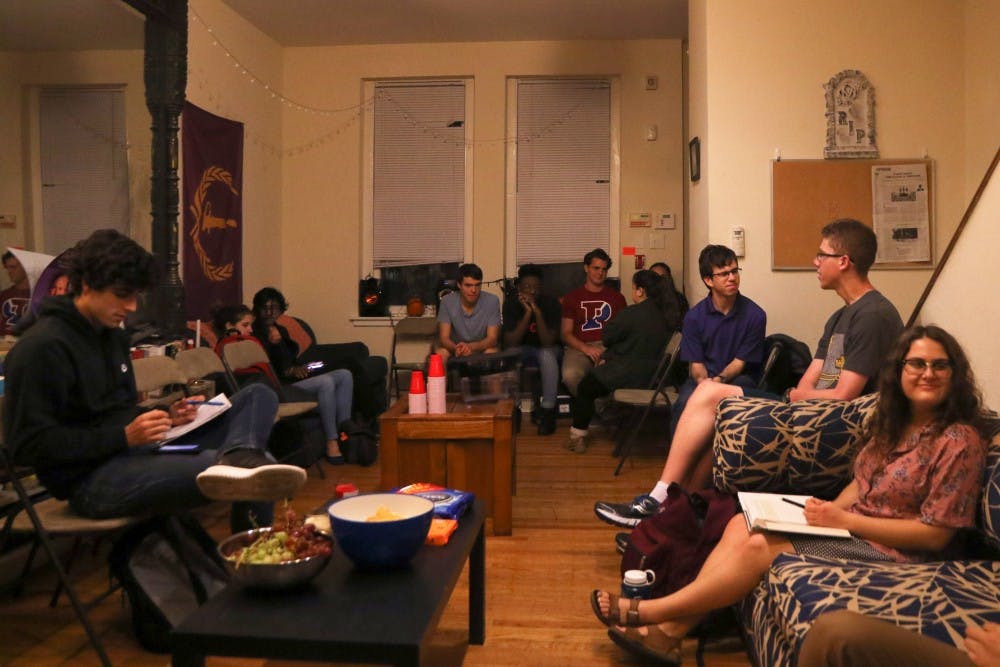In anticipation of the upcoming midterm elections, Penn students discussed the importance of this election cycle and how different demographics will play a role.
Penn’s Polybian Society hosted this discussion during their symposium on Thursday, Nov. 1 titled “Midterms, Districts, and Demographics” at the Polybian House. About 20 students attended, while Polybian Society Philosophe and Wharton sophomore Cyrus Shanehsaz moderated the conversation.
The Polybian Society is a non-partisan political discussion group on campus that is a branch of Penn's Government and Politics Association. The symposium is the Society's flagship event, and covers a different topic of discussion every week.
The discussion identified factors that differentiate this year’s midterm election from those in previous years. Students said that people across the nation are taking local elections more seriously, with some saying they have noticed stronger support for their hometowns' local candidates than in previous years.
Others mentioned greater voter enthusiasm and a growing trend to be politically involved, especially for celebrities. They also discussed an unprecedented number of women and LBGTQ+ candidates becoming involved in politics.
“The midterms signify a glimpse into the future for Americans,” College senior and Polybian Society Consul Brianna Raposo said. “Being here at Penn during the 2016 election, I was the perfect example of someone who was blindsided by the election. I’m really hoping that the 2018 midterms will set the tone going forward and give me and the rest of America a better snapshot of what’s to come.”
Attendees also discussed how politicians target their audience during this election cycle based on income, race, gender, and ideology, spurring students to note the tendency of politicians to treat women or other marginalized groups too monolithically. Students debated whether politicians should appeal to their partisan base or reach centrist voters.

RELATED:
Students discuss Penn's role in city gentrification, transportation at Polybian Society event
As midterms approach, Penn's political groups gear up for the vote
While college freshman Vyshnavi Kosigi said the Democratic Party is “having an identity crisis” as they try to balance support between the establishment and progressive candidates, others added that the Republican Party does not know whether to base their party on “Trumpism” or not.
To conclude the discussion, students presented diverging opinions about the nation’s future political climate. Some said Americans will soon come together, while others said polarization will become worse in the short-term but better in the long run.
Nevertheless, Raposo said that no matter how demographics change in America, the importance of voting remains.
“Historically-marginalized communities keep going to the polls, and I hope they continue to do that,” Raposo said. “I’m hoping that recent events have triggered younger populations to be more inspired to get to the polls, even in midterms.”









